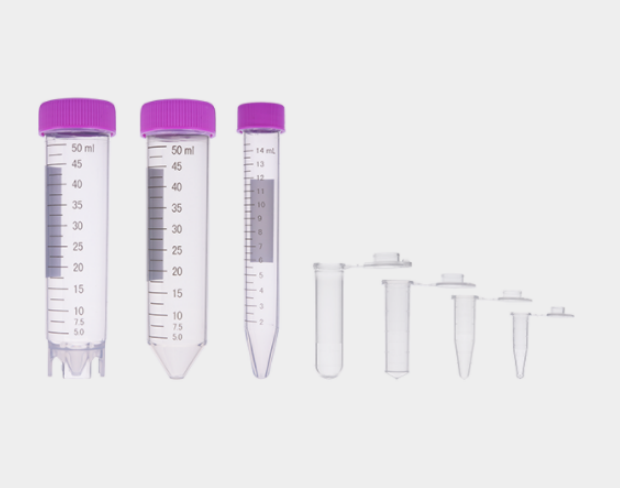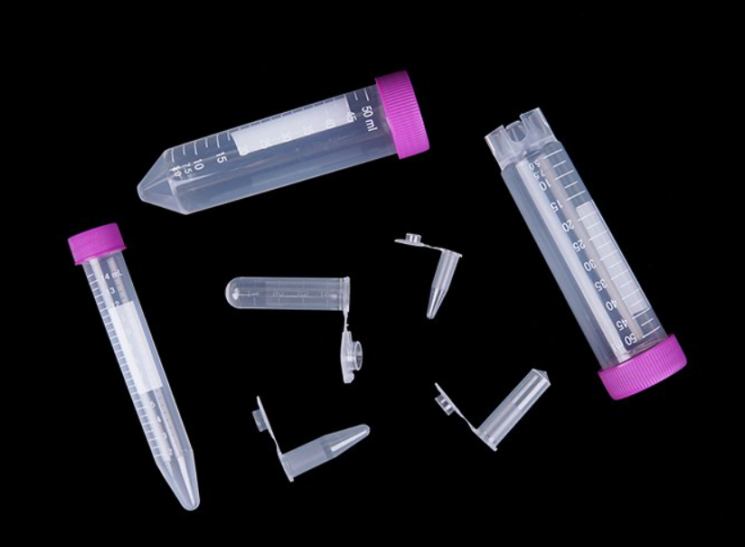Copyright © 2021 Suzhou Cotaus Biomedical Technology Co. Ltd. All rights reserved. Site Map Powered by 
Centrifuge tubes are vessels that are filled with a substance that needs to be analyzed. They are developed to fit into a centrifuge, which is a piece of laboratory equipment that rotates samples at a high speed in order to cause separation of the materials within the sample. Many laboratory processes need the assistance of a centrifuge and the centrifuge tubes are designed to fit perfectly, keep the centrifuge balanced, and stay in place during the rotation.

According to the different materials, it can be generally divided into: plastic and glass.Plastic centrifuge tubes are used more, and can be divided into PP, PC, PS, etc. According to different needs, manufacturers will choose different plastic materials for production.
According to its size, it is divided into: 1.5ml, 2ml, 5ml, 10ml, 15ml, 50ml, etc. The domestic centrifuge tubes generally have these specifications, and the most used ones are 10ml and 50ml. If your centrifuge is equipped with 30ml or other specifications of centrifuge tubes, it is necessary to consider imported ones. In addition, centrifuge tubes also have round bottoms and sharp bottoms, as well as screw caps and plug caps. The centrifuge tube with screw cap has a finer scale, and the cap has only an overall capacity indication.
The centrifuge tubes commonly used in laboratories are plastic and glass. Generally plastic ones are used more, because glass centrifuge tubes cannot be used in high-speed or ultracentrifuges. Plastic centrifuge tubes are also made of PP (polypropylene), PC (polycarbonate), PE (polyethylene) and other materials. The performance of PP pipes is relatively good. The plastic centrifuge tube is transparent or translucent, which can visually see the centrifugation of the sample, but it is relatively easy to deform and has poor corrosion resistance to organic solvents, so the service life is short. Therefore, laboratories generally buy centrifuge tubes frequently.
PP (Polypropylene): translucent, good chemical and temperature stability, but will become brittle at low temperature, not below 4 ℃ during centrifugation.
PC (polycarbonate): good transparency, high hardness, can be sterilized at high temperature, but not resistant to strong acid and alkali and some organic solvents such as alcohol, mainly used for ultracentrifugation above 50,000 rpm.
PE (Polyethylene): opaque. It does not react with acetone, acetic acid, hydrochloric acid, etc., and it is relatively stable, and easy to become soft at high temperature.

PA (polyamide): This material is a polymer of PP and PE material, translucent, very stable in chemical properties, and not resistant to high temperature.
PS (polystyrene): transparent, high hardness, stable to most aqueous solutions, but will be corroded by various organic substances, mostly used for low-speed centrifugation, and generally one-time use.
PF (polyfluorine): translucent, be used at low temperature, if it is an experimental environment at -100℃-140℃, centrifuge tubes of this material can be used.
CAB (Cellulose Acetate Butyl): transparent, can be used for the gradient determination of dilute acids, bases, salts, as well as alcohol and sucrose.
If you are searching for centrifuge tubes supplier, you are in the right place. With over a decade in the design, manufacture, and supply of high quality centrifuge tubes, we have an outstanding reputation in the industry as a leading brand that is quality-oriented.
In case you are considering investing some money in your laboratory through the purchase of premium centrifuge tubes, you can contact us for the best deal.